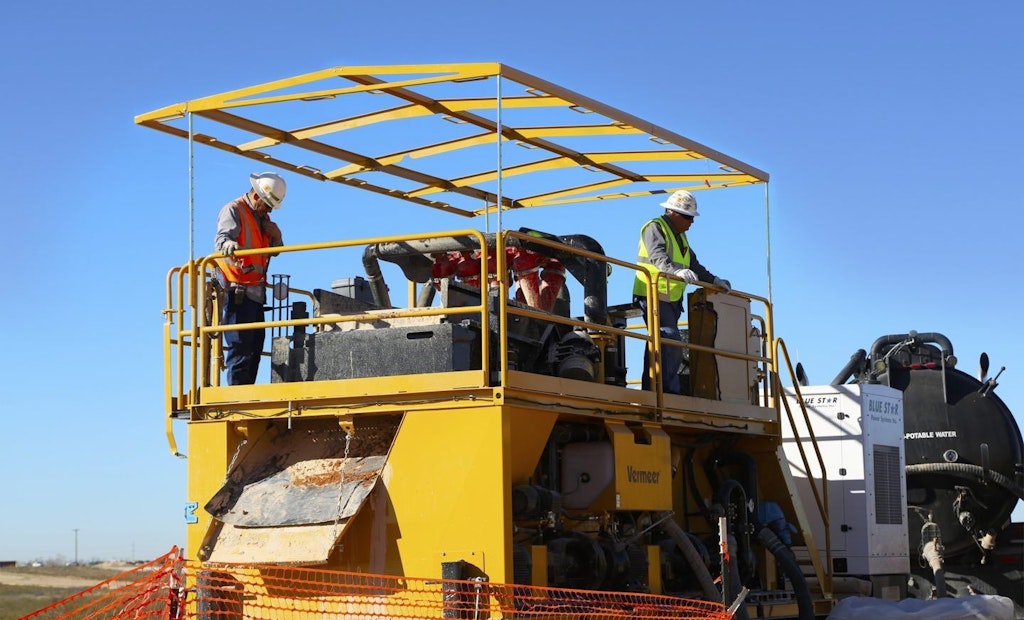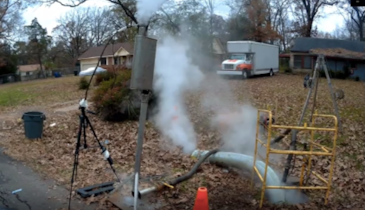Interested in Drilling?
Get Drilling articles, news and videos right in your inbox! Sign up now.
Drilling + Get AlertsWith increasing regulations targeting the disposal of horizontal directional drilling fluids and rising disposal costs, mud is becoming a major concern for the industry. Failure to plan can lead to unexpected expenses and missed opportunities, or be the reason your company isn’t awarded a particular project contract in the first place.
Creating an HDD fluid management plan will help you more accurately estimate a project before work begins and keep your crews productive on the job. This provides peace of mind for you and your customers that your team understands the regulations pertaining to proper drilling fluid disposal.
How much fluid
Your estimating process should include evaluating ground conditions at the job site, type of drilling additives you will need and the volume of fluid required for the project.
Ground conditions dictate the drilling additives you’ll need and the amount of fluid required. In sand or cobble, you will likely only need a mixture of bentonite. In reactive clay, you will probably have to use a polymer additive. Keep in mind that harder rock usually requires more fluid per bore distance.
Calculating the costs and the amount of additives and water you’ll need ahead of time will not only ensure you’re tracking your expenses on the project, but will also help you determine what equipment you need on the job.
Adding in disposal costs
Once you know how much fluid you'll need, the next thing to determine is how you plan to dispose of the spoils afterward.
To begin, you must research all local regulations about disposing of drilling fluids. Today, many projects require HDD fluids to be disposed of at licensed facilities, and the costs associated with dumping can vary greatly. You will want to look into where these sites are located and estimate how much you’ll pay to use them.
But don’t forget, the disposal costs aren’t your only expense. You also have to estimate the distance between the job site and disposal facility, as well as the fuel and labor costs involved in making the round trip. These expenses are easy to overlook.
Weighing your options
After adding up your fluid and disposal costs, it’s time to evaluate equipment options that may be able to reduce your out-of-pocket expenditures. For projects that require large volumes of fluid, bringing in a reclaimer like the Vermeer R250C can help reduce the amount of fluid and additives used by removing solids and recycling fluids.
Solidification systems like the Vermeer MUD Hub are another option to consider for projects that have high disposal fees. Solidifying used drilling fluids can give you more disposal options. Many drilling spoils will now be able to be disposed of at a regular landfill, used for ground cover or added to composting mixes. Also, since the waste is now a solid, it can be hauled in a dumpster or dump truck, which helps keep your vacs off the road and on the job.
On the job
There is a lot of upfront work involved with fluid management, but your plan should not stop there. On the job, you need to make sure the crew knows how to properly mix drilling fluids, understand how to measure fluid viscosity and use the proper amount of mud during the pilot bore, reaming and pullback. Mistakes made on the job can be as costly as not planning correctly.
Documentation
Finally, it’s important to document your disposal process and location for your customer. Many utility companies require fluid disposal documentation, but even if your customers do not, having a paper trail can help protect your business if someone has questions in the future.
If you have questions about creating your own HDD fluid management plan, contact your local Vermeer dealer or visit Vermeer.com.






